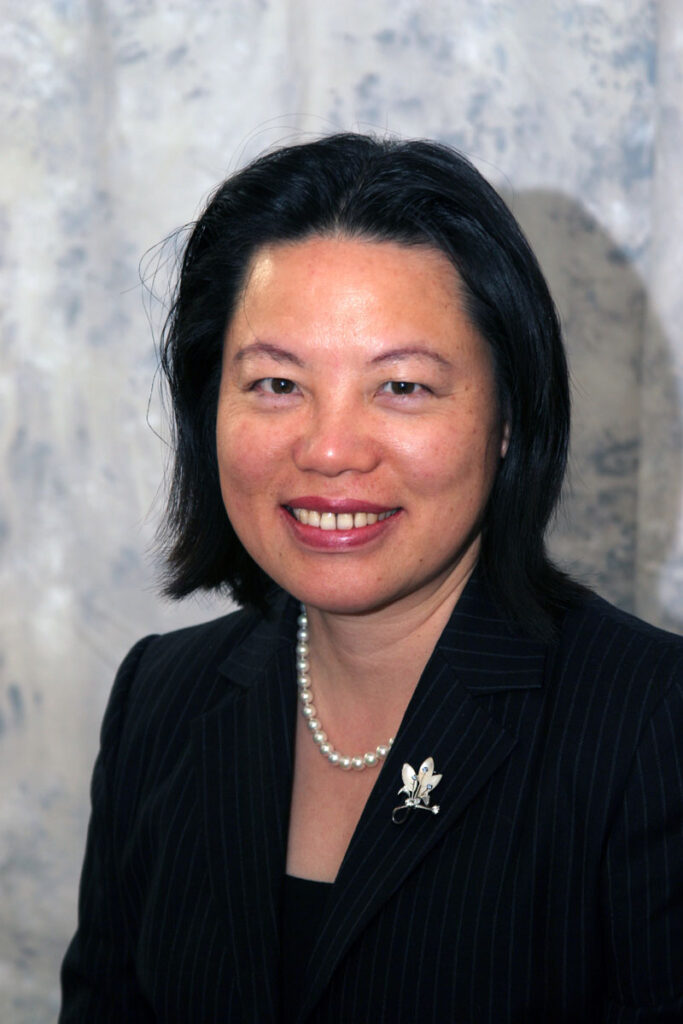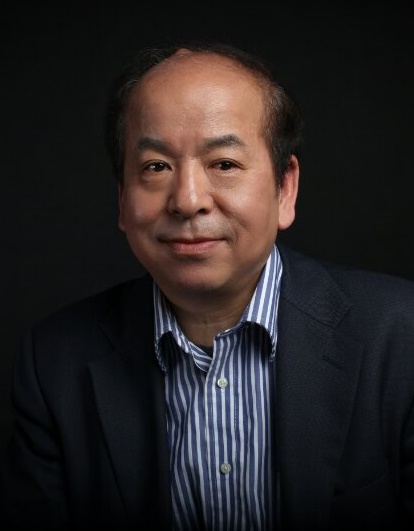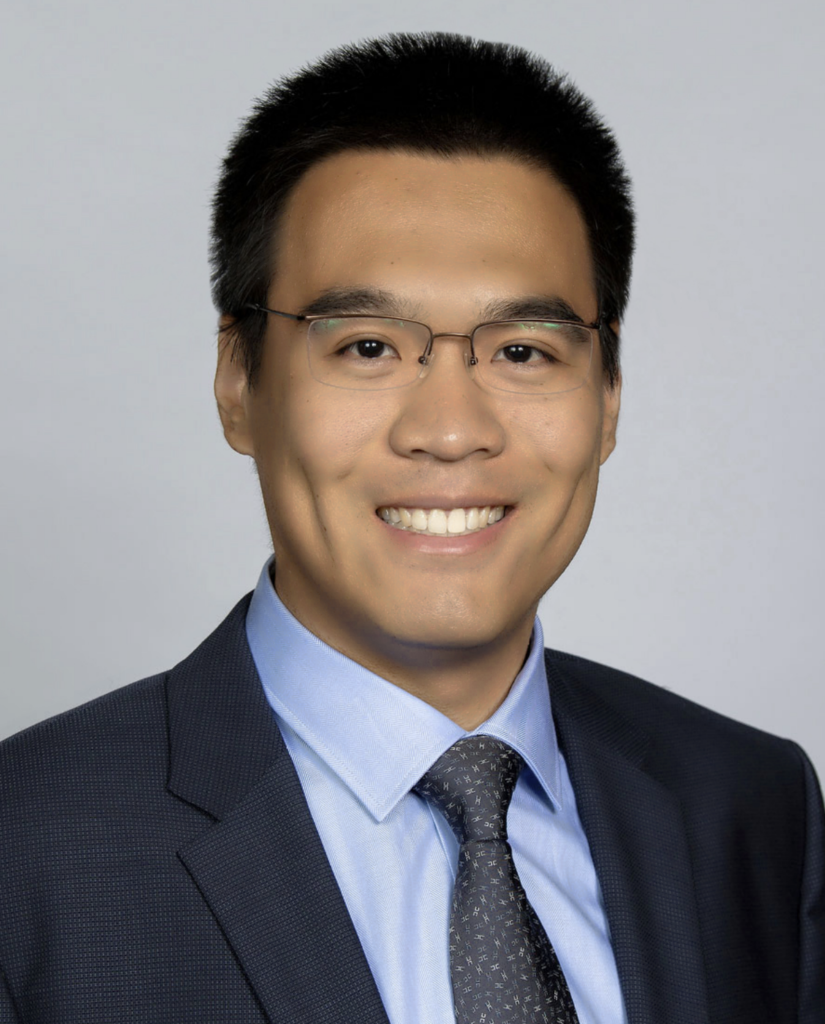On December 5, USCET hosted a webinar on The Role of Chinese Students in America, featuring four distinguished Americans who arrived in the US as Chinese international students and hosted by USCET President Madelyn Ross. The discussion highlighted themes that emerged from USCET’s recently published report, Three Decades of Chinese Students in America, 1991-2021, developed in partnership with the China Data Lab of the UC San Diego 21st Century China Center. The panelists, who came to the US in different decades, personify the contributions made by former Chinese students to their adopted country.
Yawei Liu first arrived in the US in 1987. After earning an M.A. and Ph.D. in History, he has spent the past 25 years working at the Carter Center in Atlanta. “I came here with about $250,” said Dr. Liu. “I had to borrow money and return it when I earned it.” He became a U.S. citizen in 2005 and has spent much of his career focused on US-China relations. He personally feels impacted by the strained bilateral relationship. “I have a divided identity,” he said. “In China, people think that I’m no longer Chinese. But here in America, people still think you’re Chinese. So, it’s kind of an identity crisis.”
Dawn Li, a Washington, DC-based data scientist and business owner, reflected on the many opportunities that opened to her by studying in the US starting in 1990. “If I hadn’t studied in the US, I would have been a college professor in China. Now I’m really engaged at the forefront of technology,” she said. Dawn was first attracted to data science because of the open and connected university library systems she had access to. “I went to all the five floors, touched all the books.” she said. “When I was in Beijing, I couldn’t even get to the stacks.”
For Min Fan, Executive Director of the US Heartland China Association, coming to the US in the mid-1990s was a risky decision. “I came from a family with modest means and aspirations. Being accepted to Peking University was a dream come true,” she said. But at Peking University, she found herself more attracted to extracurriculars like drama than to her studies in information systems, and she eventually left for the US, earning a B.A. in art at University of North Carolina (UNC), and later an M.B.A. Ms. Fan began her career in corporate America but wanted to do something to help stabilize the US-China relationship, eventually moving into the nonprofit world where she now works.
Yi Zheng earned his M.S. and Ph.D. degrees in mechanical engineering in the US in 2011 and 2015, after graduating from China’s Tsinghua University. He feels that his education in China built foundational skills that helped him thrive in the US. Many of his undergraduate classmates also came to the US for graduate school, but more now return to China after completing their studies because of immigration issues. Increasingly, young Chinese professionals he talks with also feel that China is leading America in many engineering fields. He has seen several Chinese and Chinese American professors at US schools choose to leave for professorships in China.
Each panelist expressed the hope that Chinese students would continue to choose to study in the US, while acknowledging an overall drop in interest in studying here. “…A lot of students are here because their parents want them to be,” said Ms. Fan, reflecting on her undergraduate Chinese interns. These students, she said, tend to be less happy in the US. She also noted that, in China today, “being educated abroad is not as strong a selling point as it used to be and for some government jobs it’s actually not preferred.” In the US, competition is also strong for jobs. Dawn Li noted that her firm’s interns often want to stay in the US after graduation, but it’s challenging for them to get visas. It’s quite competitive in the data science field, she noted and students who can find jobs and remain “really have to be top notch.”
Watch the full discussion by clicking on the video above!
Read more about our panelists below.
Panelists

Min Fan joined the United States Heartland China Association (USHCA) as its Executive Director in 2020 after a successful career as an innovation leader in a large multi-national technology company, a mentor in the Colorado startup ecosystem, and a nonprofit leader. As the executive director, Min is responsible for the strategic planning, program execution, and partner/donor relationship management of USHCA. Min Fan studied at Peking University before completing her graduate education at the University of North Carolina-Chapel Hill.

Dawn Li is an educator, entrepreneur, and writer. With over 50 years of her life divided almost equally between China and the US, she navigates two distinct cultures, embracing eastern traditions and western ideals. She manages a successful small data analytics business and teaches Daoist arts like Tai Chi and Qigong. She studied in the US as an international student from China from 1990 to 1996. Dawn’s study of literature and information technology allow her to harmonize the realms of creative arts and science and technology. Her book of poetry, Song of a Lotus Leaf (Precocity Press, 2020), intricately weaves her experience with Chinese sensibility.

Yawei Liu is senior advisor for China at The Carter Center and a member of the Council on Foreign Relations. He is also the associate director of the China Research Center in Atlanta and an adjunct professor of Political Science at Emory University. He joined the Carter Center in 1998 and became its China Program director in 2005. The founding editor of www.chinaelections.org, he also launched the U.S.-China Perception Monitor in 2014. Yawei earned his B.A. in English literature from Xi’an Foreign Languages Institute (1982), M.A. in recent Chinese history from the University of Hawaii (1989) and Ph.D. in American History from Emory University (1996).

Yi Zheng is a tenured professor in the Department of Mechanical and Industrial Engineering and Director of the Nano Energy Laboratory at Northeastern University in Boston, and founder of the cleantech start-up, Planck Energies. He received his Ph.D. and M.S. from Columbia University and B.S. from Tsinghua University (Beijing). Prof. Zheng has published over 80 journal papers, filed nine patents, and secured research grants from sources including NSF, NIH, NASA, DARPA, and the US Air Force. His current research aims to address climate change and global challenges in energy and water scarcity. His awards include the ASTFE Early Career Researcher Award, NSF CAREER Award, and the NASA Glenn Faculty Fellowship among others.
Moderator
Madelyn Ross became president of the US-China Education Trust in 2022. Before joining USCET she was associate director of China Studies and executive director of SAIS China at Johns Hopkins University School of Advanced International Studies. She also was the director of China initiatives at George Mason University and began her career at the US-China Business Council, where she was editor of The China Business Review. She has a B.A. from Princeton University and an M.A. from Columbia University and did graduate work at Fudan University in Shanghai in 1979-1980.
